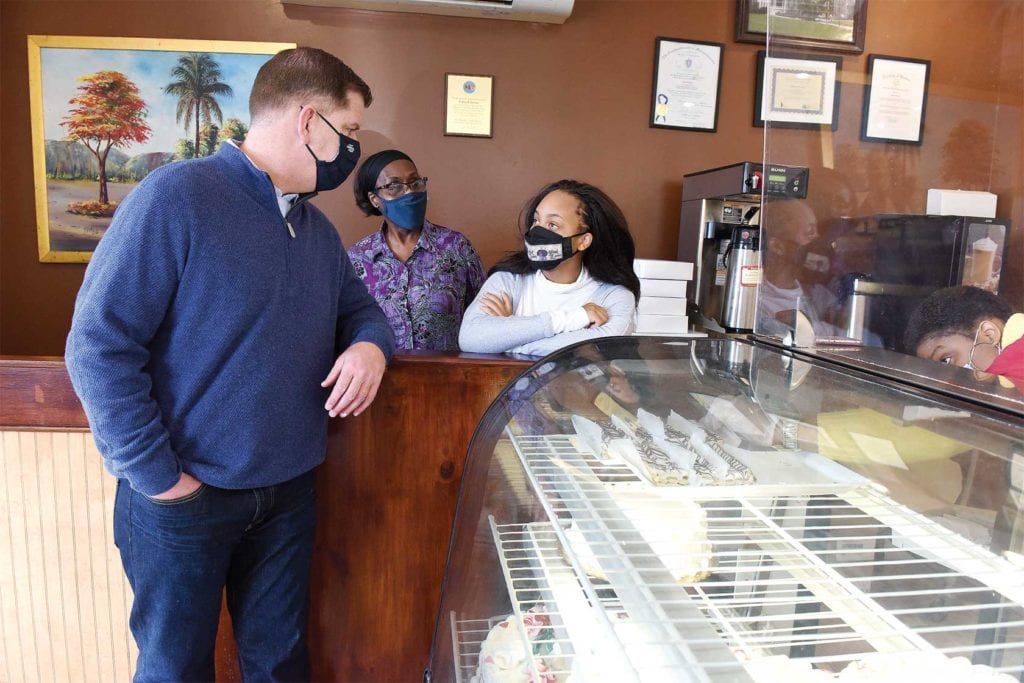
Mayor Martin Walsh announced Tuesday a new community engagement process to reimagine Boston’s businesses. Reimagine Boston Main Streets is meant to strengthen the city’s Main Streets program, assess where the resources are and identify gaps. The first part of this community engagement process began at a Nov. 23 Remo event — a virtual conference where attendees could sit at “tables” and discuss different aspects of Boston business.
On four virtual floors, the mayor traveled back and forth between tables to listen to the concerns of small business owners and residents of Main Streets neighborhoods. There were also side tables where attendees could interact with one another more directly. At one point, the event was so full that organizers had to create a second conference so everyone could join in on the discussion.
Walsh gave his remarks at the end of the night.
“Community engagement and voices are at the core of this initiative. We want to hear everything, what’s working, what isn’t working, what could be improved,” he said. “One of the funds we just recently created in the city was for rent for businesses. And that came up. A lot of people were talking here about the need for support and rents.”
He was referring to the Commercial Rent Relief Fund, which provided up to $15,000 for small businesses who were in phase 3, step 2 and phase 4 of the Reopening Massachusetts plan.
“This year has been a really tough time for a lot of our small businesses and our local economies, with the exception of people finding new businesses there,” Walsh said, noting that some small businesses have had a lot of success as people are finding new businesses on their street, since they’re staying home more often.
Part of Reimagine Boston Main Streets will be looking into the neighborhoods that lead into and out of Main Streets districts, and they’ll be included in future conversations as well. Liz O’Connor, founder of Strategy Matters, will be working with Main Streets on this project and spoke at the conference. She and Natalia Urtubey, director of small business in the Mayor’s Office of Economic Development, answered questions about the Remo platform as well, since technical difficulties slowed the process.
“Tonight is not about individual main streets and the individual Main Street districts — rather, it is about learning from you,” Urtubey said.
She added that they are considering any suggestions for new Main Streets neighborhoods. Currently there are 20 districts that have been formed over the last 24 years.
“We absolutely welcome your feedback and discussion about new potential districts, existing districts and previous districts,” she said.
O’Connor said, “It’s going to be a bunch of months ahead of us where we’re going to be engaging in multiple ways, and we’re just getting used to this technology. We’re also going to do a lot of looking around at other practices and other places, whether that’s other parts of the country, or other parts of the world, where are people investing in the success and vitality of small business districts and doing it well.”
Though future events have not yet been announced, they will likely include more discussion around specific problems that small businesses face, long before changes and solutions are presented by the city.






